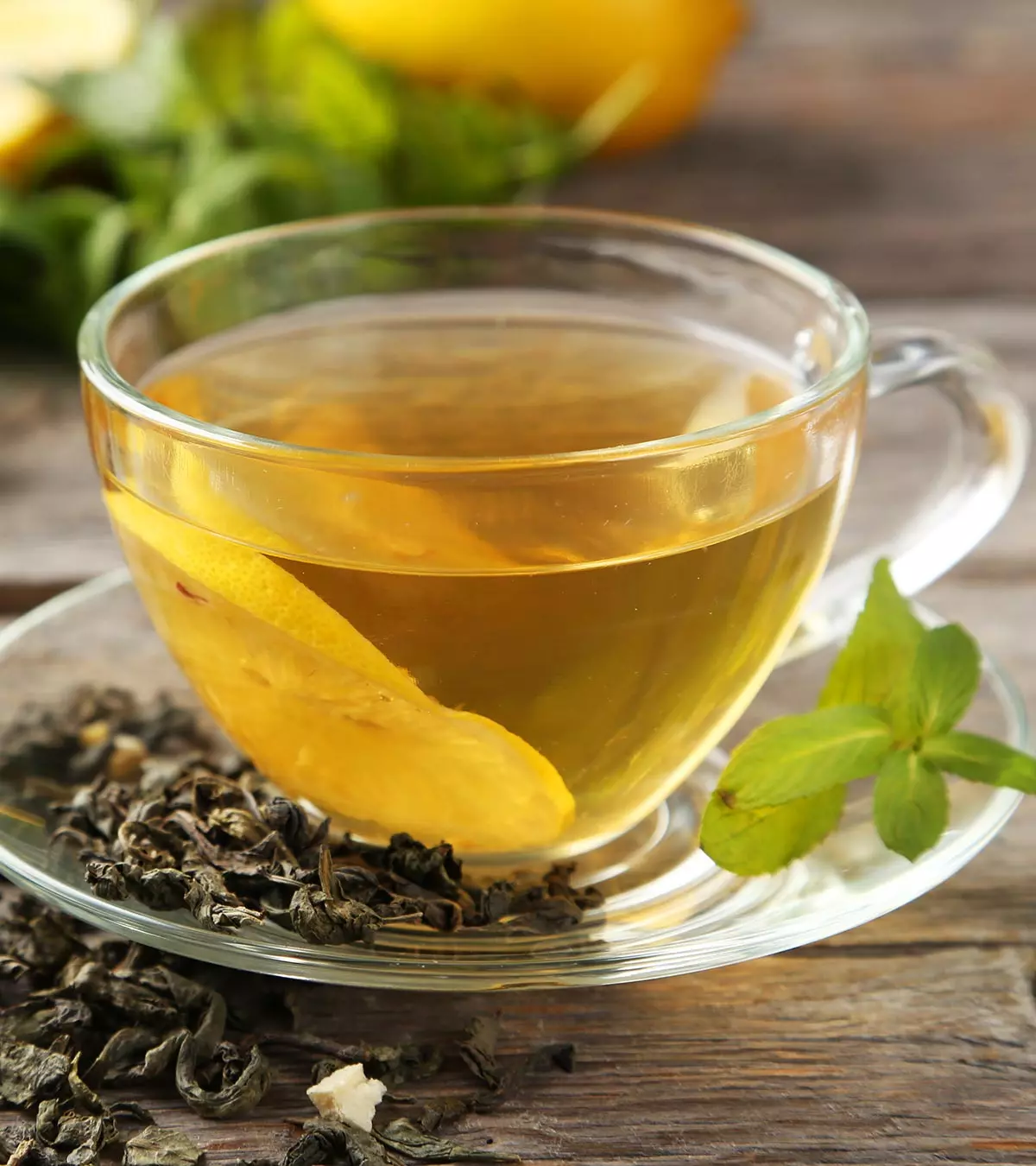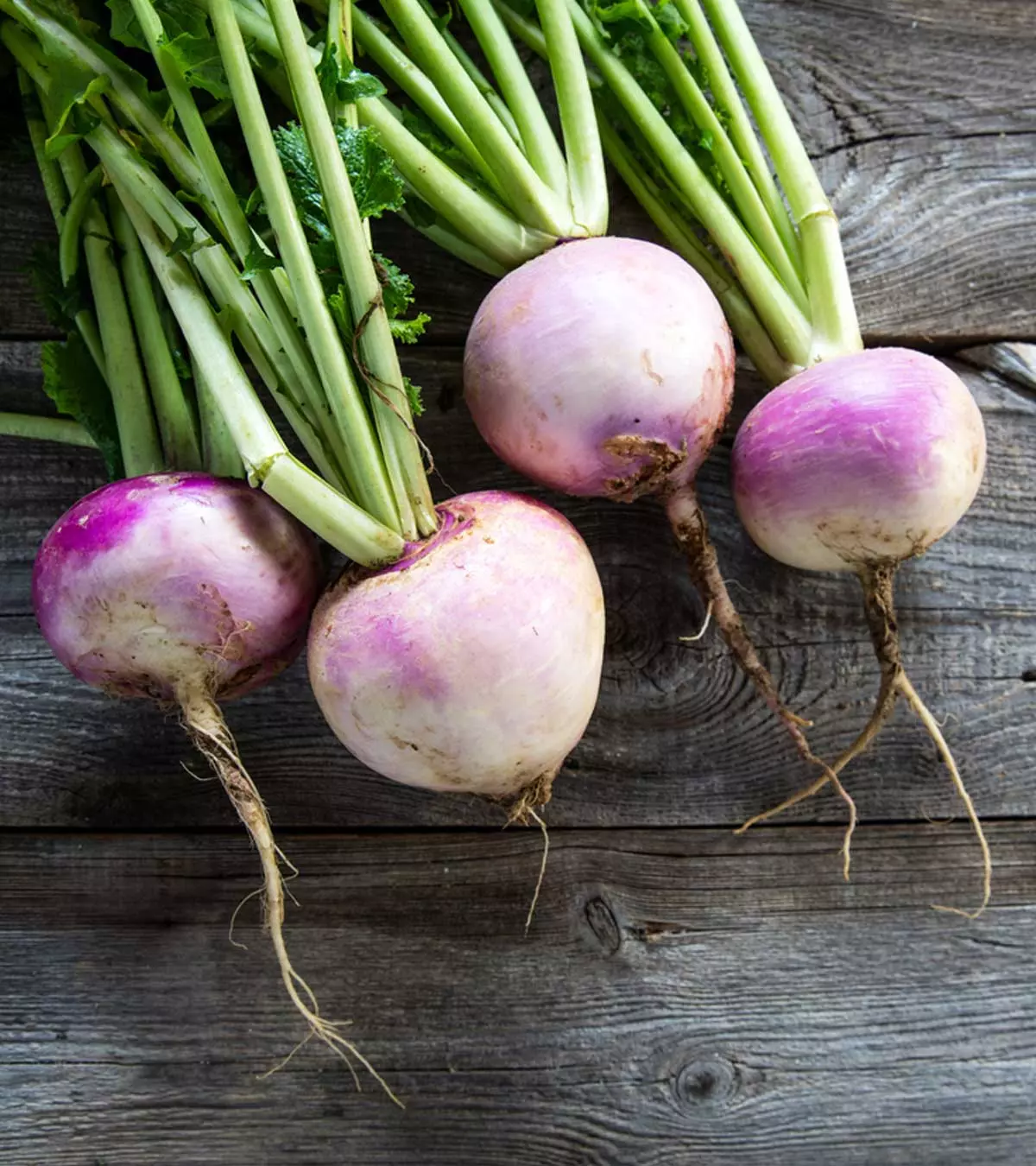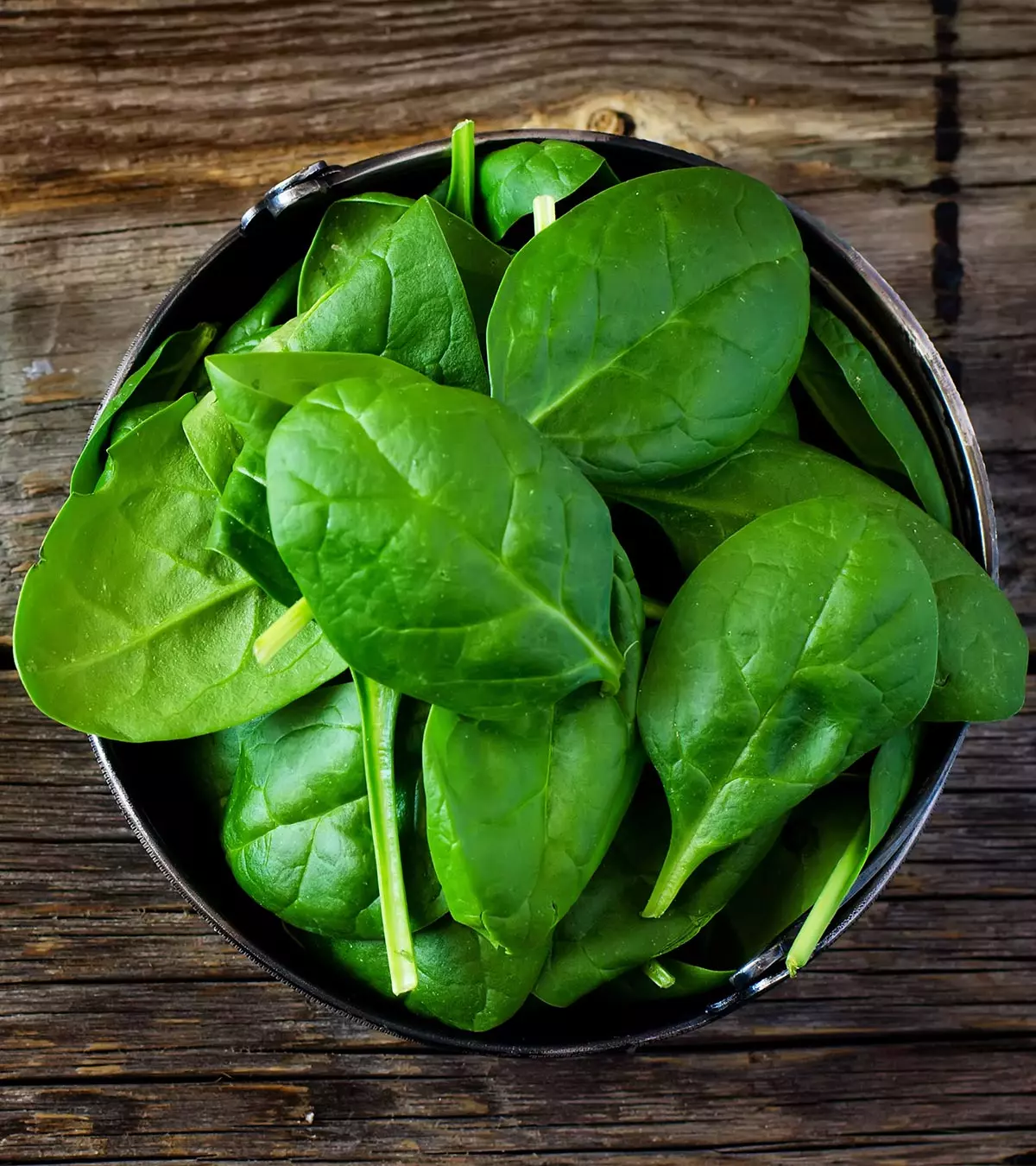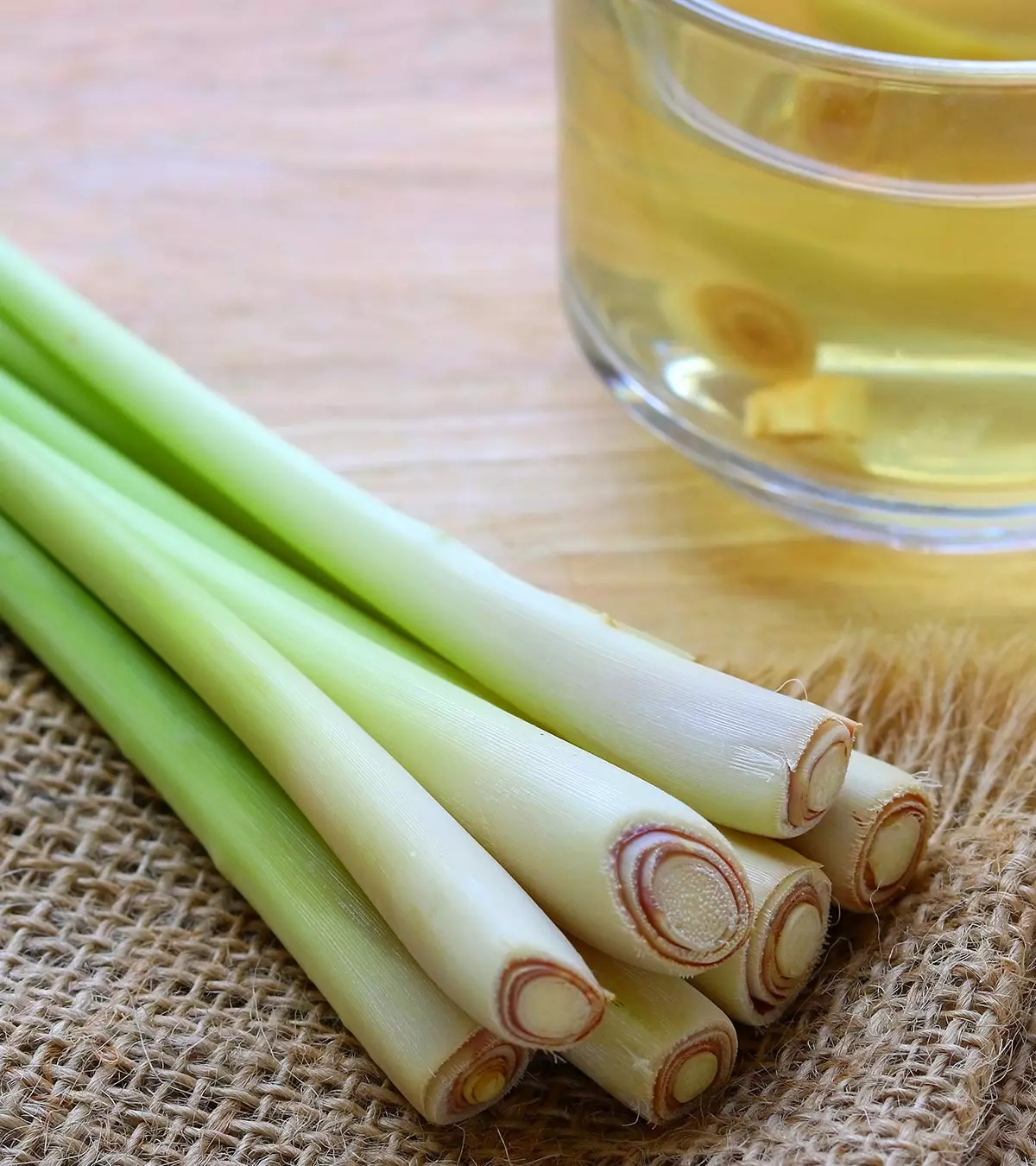
Green tea is one of the most effective drinks that improve metabolism. But is it safe to have green tea in pregnancy? This post will help you answer this question. Green tea is a rich source of catechins and is processed with minimal oxidation compared to other teas (1). Catechins are substances that prevent your cells from completely absorbing folic acid, as the presence of folic acid in the blood during pregnancy helps prevent neural tube defectsiBirth abnormalities of the brain, spine, and spinal cord in a growing fetus caused by the folic acid deficiency . However, there is not much scientific evidence to give the green light to having green tea while pregnant. Therefore, it is advised to consult your doctor before consuming it. Read on to know more.
Key Pointers
- Green tea is considered safe when consumed in moderation during pregnancy, but it is advised to limit the amount consumed due to the EGCG and caffeine content.
- Health benefits of green tea during pregnancy include lowering blood pressure, improving immunity, controlling blood sugar levels, preventing dental problems, treating skin problems, and reducing mood swings.
- Excessive consumption of green tea during pregnancy can cause anemia, birth defects, and sleep interference.
Is Green Tea Safe During Pregnancy?

Yes, it is safe to drink green tea in moderate amounts as there aren’t any clinical studies advising against its consumption during pregnancy.
Green tea is rich in nutrients, which means you can enjoy a cup or two every day as a part of your maternal diet.
However, you need to limit the quantity due to the epigallocatechin (EGCG) and caffeine content in it (1).
 Quick tip
Quick tipWhat Is Epigallocatechin In Green Tea?
EGCG is an active ingredient and a powerful antioxidant in green tea (2). As good as it may be, the compound can affect the body’s folate metabolism, which is important during pregnancy (3).
Folate is essential to prevent neural tube defects in the fetus. As green teas are the least processed among all the teas, they contain the highest concentrations of this component that may be potentially harmful during pregnancy.
How Much Caffeine Does Green Tea Have?

An 8oz (237ml) cup of green tea contains about 24mg to 45mg of caffeine, although the exact quantity depends on the brewing time and the brand of tea you choose (4). The same amount of coffee contains about 95mg to 200mg of caffeine, which means a typical cup of green tea contains less than half the amount of caffeine in a cup of coffee (5).
Also, a cup of decaffeinated green tea contains around 12mg of caffeine or less (6).
How Much Green Tea Is Safe While Pregnant?
You can have up to 200mg of caffeine a day, which accounts for three to four cups of green tea in a day. When considering drinking tea during pregnancy, it’s important to account for caffeine from other sources, such as soft drinks, coffee, cola, chocolate, energy drinks, and more (7). See to it that everything put together doesn’t go above 200mg a day. Additionally, drink green tea in moderation to limit fluoride exposure.
What Are The Benefits Of Consuming Green Tea During Pregnancy?
Green tea offers more benefits than standard black teas, coffee, and other caffeinated drinks.
Here are some of its benefits.
1. Regulates blood pressure
High blood pressure during pregnancy can lead to a complication called preeclampsia. They could also lead to hypertensive disorders in pregnancy (HDP), which might result in hospitalization. According to a press release by the Centers for Disease Control and Prevention (CDC), the incidence of HDP increased from 13% in 2017 to 16% in 2019 in the US.
Green tea is an excellent source of antioxidants, called polyphenols, which help in preventing cell damage in the body. Therefore, regular consumption of green tea can regulate blood pressure (8).
2. Keeps blood sugar under control
Some of the compounds in green tea can modify glucose levels by controlling the sugar levels in the body, thus benefiting gestational health. Green tea is also helpful if suffering from gestational diabetesiA form of diabetes that develops during pregnancy when blood glucose levels are elevated (9). Talk to your doctor if you are concerned about your blood sugar levels or have gestational diabetes.
3. Protects against dental issues

During pregnancy, you are prone to dental problems such as cavities, gingivitisiA mild gum disease caused by bacteria that makes the gums appear red, swollen, and prone to bleeding , and more. The antioxidant catechin, present in green tea, has the power to destroy the bacteria and virus causing some of these issues (10).
4. Resolves skin problems
Acne and breakouts are common due to the hormonal changes in pregnancy. The antioxidantsiOrganic or synthetic compounds that protect cells from free radicals and stop or delay cell damage and anti-inflammatoryiDrugs or compounds that reduce redness, swelling, and pain in the body by blocking any triggers causing inflammation properties of green tea will help reduce these skin problems (11).
5. Alleviates mood swings
Antioxidants in green tea increase the metabolism rate, which works in countering mood swings during pregnancy. Also, the amino acid called theanine in green tea provides relaxing effects, helping treat mood swings (12).
6. Boosts immune system
Green tea stimulates the body’s ‘T cells’, which play a key role in improving immunity and fighting off common and mild illnesses (13).
Before you prepare a big cup of green tea and sit down to drink, you may want to know about its side effects, if any.
Kuhoo, a mother, an early childhood educator, and Montessorian, says, “For me, it helped me in good digestion, weight loss, sugar control (gestational diabetes – during pregnancy), bloating during pregnancy, building immunity & it gives me an overall feel-good factor (i).”
 Quick fact
Quick factAre There Any Side Effects Of Drinking Green Tea While Pregnant?

Along with the benefits, green tea can also cause some side effects if consumed in excess.
- Consumption of excessive amounts of green tea may affect the iron absorption ability of red blood cells (14). It can, therefore, lead to gestational anemia, hampering the oxygen and nutrient supply to the baby.
- Green tea might inhibit absorption of folic acid, which is very important during pregnancy (15). Folic acid is essential during the first 12 weeks of pregnancy to prevent neural birth defects in babies.
- With a progressing pregnancy, the body’s ability to break down caffeine decreases. So excess green tea consumption might interfere with sleep patterns and alertness and increase the risk of adverse effects in pregnancy (16).
 Did you know?
Did you know?Which Variety Of Green Tea Is Safe During Pregnancy – Organic, Decaf Or Matcha?
All three varieties of green tea can be safely consumed during pregnancy, although in limited quantities. Also, daily caffeine intake should not exceed 200mg a day.
- Organic green tea is a certified tea that has been extracted from the plants grown using natural farming methods, without the use of synthetic pesticides and fertilizers.
- Decaf green tea has relatively less caffeine content, compared to the standard green tea.
- Matcha green tea is made from the finest green tea leaves that are rich in antioxidants. The stems and veins are removed and then ground to fine powder. You can have up to no more than one cup a day of this tea since it is more concentrated than regular green tea.
Picking the right tea is just the first step. Brewing it right and drinking it at the right time makes all the difference.
 Research finds
Research findsTips For Drinking Green Tea While Pregnant

Here are a few things to remember while having green tea:
- Do not drink on an empty stomach because green tea contains tannins that may cause acidity, further leading to nausea, constipation, and stomachache.
- Do not have it along with meals as it may dilute the gastric juices and hampers the absorption of iron from food. This may lead to iron deficiency.
- Maintain a gap of at least two hours between meals and green tea.
- Do not have more than two cups of green tea a day.
- Do not drink green tea before bedtime or late afternoon as it might affect your sleep.
- Buy a properly packaged tea from a reputable brand or seller.
- Choose organic green tea to reduce exposure to pesticides and harmful chemicals.
- Use filtered water to make green tea.
Next, we answer a few common questions about green tea in pregnancy.
Frequently Asked Questions
1. Is it safe to drink green tea early in pregnancy?
It is safe to consume small amounts of green tea in the initial stages of pregnancy. Overconsumption can inhibit your body’s ability to absorb folic acid, which can increase the risk of congenital disabilitiesiMedical disorders present from birth and could be hereditary or due to infection or injury to the fetus during pregnancy in babies (17).
2. Is it safe to consume green tea extracts while pregnant?
Consumption of green tea extracts during pregnancy is not recommended as it contains highly concentrated amounts of caffeine and other components. The extracts are available in the form of a capsule or powder, with a level of caffeine that is too high and potentially harmful during pregnancy.
3. Can I drink green tea to burn fat during pregnancy?
During pregnancy, it is important to be aware of nutrient requirements and avoid consuming green tea for burning fat as it can negatively impact both the mother’s nutritional intake and the fetus’s necessary energy for growth.
4. Is it okay to take green tea pills while pregnant?
Green tea pills are not safe during pregnancy as they speed up metabolism and may prevent the body from retaining nutrients. They are also highly concentrated, which may lead to excessive caffeine intake.
5. Is there any difference between green tea and herbal tea during pregnancy?
Green tea is different from herbal tea. While green tea is sourced from the plant Camellia sinensis, herbal teas are not (can have multiple sources such as dried herbs, spices, seeds, flowers, roots, or leaves of various plants). Green tea contains caffeine, whereas herbal teas are caffeine-free (21). Even then, not all herbal teas are safe for consumption during pregnancy, as there is no evidence of their safety during this period (22)
6. Is there any evidence that green tea can help with morning sickness during pregnancy?
There is no scientific evidence that states green tea may improve symptoms of morning sickness during pregnancy.
Having green tea in pregnancy is safe for you and your baby. Green tea is rich in catechins and nutrients and has various health benefits, such as regulating blood pressure, controlling blood sugar, boosting the immune system, and protecting against dental issues. Studies suggest pregnant women can have three to four cups of green tea in a day. However, it is best to consult your doctor before drinking green tea or any other herbal teas during pregnancy, as overconsumption can pose risks due to its epigallocatechin and caffeine content.
Infographic: Precautions To Take When Drinking Green Tea During Pregnancy
Green tea is a wonderful source of antioxidants and is generally regarded as healthful. However, there are some things you must know about consuming green tea during pregnancy. We have included a few in this infographic below. Keep reading! Illustration: Momjunction Design Team
Illustration: Green Tea In Pregnancy: 6 Benefits And 3 Side Effects

Image: Stable Diffusion/MomJunction Design Team
Contemplating lemon water or green tea during pregnancy? Delve into their safety and associated risks through this video, helping you make informed choices for your well-being.
Personal Experience: Source
MomJunction articles include first-hand experiences to provide you with better insights through real-life narratives. Here are the sources of personal accounts referenced in this article.
i. My evergreen green tea recipehttps://the-k-junction.blogspot.com/2016/08/my-evergreen-green-tea-recipe.html
References
- Rafaela Macedo Mendes de OLIVEIRA; (2012); Quantification of catechins and caffeine from green tea (Camellia sinensis) infusions extract and ready-to-drink beverages.
https://www.scielo.br/j/cta/a/8Y9c3pBkGThNcY4PvjbzDbM/ - Mary E. Waltner-Law et al.; (2002); Epigallocatechin Gallate a Constituent of Green Tea Represses Hepatic Glucose Production.
https://www.jbc.org/article/S0021-9258(18)36718-8/fulltext - Enma Navarro-Perán et al.; (2005); The antifolate activity of tea catechins.
https://pubmed.ncbi.nlm.nih.gov/15781612/ - Green Tea Facts and Evidences
https://opensiuc.lib.siu.edu/cgi/viewcontent.cgi?referer=&httpsredir=1&article=1814&context=gs_rp - Paolo Rinaudo; (2016); A Practical Guide to Fertility and IVF.
https://rinaudolab.ucsf.edu/sites/g/files/tkssra2951/f/wysiwyg/Rinaudo_Fertility_Manual.pdf - Jenna M Chin et. al.; (2008); Caffeine content of brewed teas.
https://pubmed.ncbi.nlm.nih.gov/19007524/ - Joris C. Verster and Juergen Koenig (2017) Caffeine intake and its sources: A review of national representative studies.
https://www.tandfonline.com/doi/full/10.1080/10408398.2016.1247252 - Xiaoli Peng et al.; (2014); Effect of green tea consumption on blood pressure: A meta-analysis of 13 randomized controlled trials.
https://www.ncbi.nlm.nih.gov/pmc/articles/PMC4150247/ - Green Tea Lowers The Blood Sugar Level.
https://www.pacificcollege.edu/news/blog/2014/08/01/green-tea-lowers-the-blood-sugar-level - Baruch Narotzki et al.; (2011); Green tea: A promising natural product in oral health.
https://pubmed.ncbi.nlm.nih.gov/22226360/ - S K Katiyar et al.; (2000); Green tea and skin.
https://pubmed.ncbi.nlm.nih.gov/10926734/ - Ai Yoto et al.; (2012); Effects of L-theanine or caffeine intake on changes in blood pressure under physical and psychological stresses
https://www.ncbi.nlm.nih.gov/pmc/articles/PMC3518171/ - Mechanism discovered for health benefit of green tea, new approach to autoimmune disease.
https://news.oregonstate.edu/news/mechanism-discovered-health-benefit-green-tea-new-approach-autoimmune-disease - Ershad Sheibani; (2014); Effects Of Water Chemistry And Panning On Flavor Volatiles And Catechins In Teas (Camellia Sinensis).
https://vtechworks.lib.vt.edu/server/api/core/bitstreams/97bcedf2-47d4-4dfd-8d51-3f83077dbd15/content - N Ceren Alemdaroglu et al.; (2008); Influence of green and black tea on folic acid pharmacokinetics in healthy volunteers: potential risk of diminished folic acid bioavailability.
https://pubmed.ncbi.nlm.nih.gov/18551467/ - Green Tea
https://www.nccih.nih.gov/health/green-tea - Folic Acid.
https://medlineplus.gov/druginfo/natural/1017.html - Green tea.
https://www.mountsinai.org/health-library/herb/green-tea - Green tea-induced anaphylaxis: The first pediatric case report.
https://www.jstage.jst.go.jp/article/allergolint/70/4/70_507/_pdf - Tea.
https://nutritionsource.hsph.harvard.edu/food-features/tea/ - Berna Terzioglu Bebitoglu; (2020); Frequently Used Herbal Teas During Pregnancy – Short Update.
https://www.ncbi.nlm.nih.gov/pmc/articles/PMC7384490/
Community Experiences
Join the conversation and become a part of our nurturing community! Share your stories, experiences, and insights to connect with fellow parents.
Read full bio of Claudia Wilson
Read full bio of Rebecca Malachi
Read full bio of Swati Patwal
Read full bio of Dr. Joyani Das





















